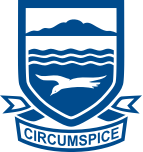At Rangitoto College, we empower students to understand and make informed decisions about business performance, the economy, and technological applications. To support this, we offer a broad range of subjects across the Commerce Department.
Commerce Subjects Accounting, Business Studies, and Economics form the foundation of commerce education:
- Accounting teaches students to process financial transactions and prepare financial documents that support sound business decision-making.
- Business Studies focuses on developing and delivering goods and services to meet customer needs, while exploring key managerial tasks such as recruitment and communication.
- Economics examines the factors influencing consumer, producer, and government choices, and explores their broader economic impact.
Digital Technology Subjects Digital Technology is also taught within the Commerce Department, equipping students with essential skills for the modern business world:
- Multimedia Technology (MMT) involves using multimedia applications to develop solutions for client-based projects.
- Programming and Computer Science (PRG) introduces students to coding languages used to create software and applications.
Subject Offerings We offer a wide selection of subjects across year levels, including:
- Business and Economics (BEC) and Digital Technology (DGT) in the junior school
- Accounting (ACC)
- Scholarship Accounting
- Business Studies (BST)
- Economics (ECO)
- Scholarship Economics (ECS)
- Digital Technology (DTT)
- Multimedia Technology (MMT)
- Programming and Computer Science (PRG)
- Scholarship Technology (Digital Technologies) in MMT and PRG
- Generic Computing Applications



